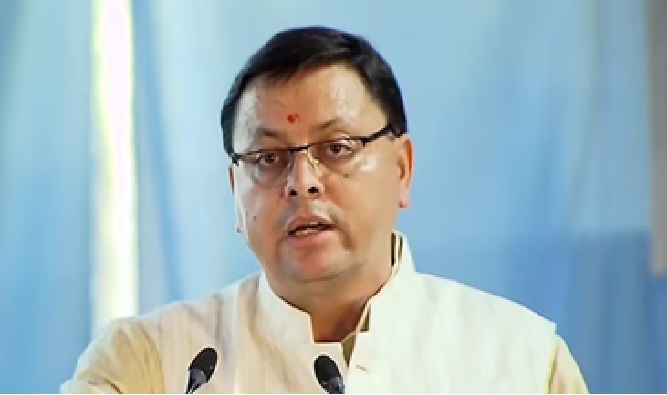Uttarakhand’s DBT system remains incomplete, sparking farmer outrage over exclusion.
New Delhi: The Pushkar Singh Dhami-led BJP government in Uttarakhand has failed to fully implement the Direct Benefit Transfer (DBT) system in state-run schemes, despite official directives issued four years ago. The DBT system remains only partially operational across numerous agricultural and horticultural schemes, raising serious concerns about transparency and the continued exclusion of genuine beneficiaries.
Many farmers have alleged that they have not received payments through the DBT system. A local farmer, speaking anonymously to The Sunday Guardian, claimed that only those with close connections to regional or head office staff consistently benefit from government schemes.
“A small group of farmers is repeatedly favoured—often due to political influence, personal ties, or familiarity with bureaucratic processes—while many genuine and deserving farmers are excluded,” he said.
He added that this has led to widespread frustration and a deep sense of injustice, especially among farmers in remote areas who lack direct access to officials or powerful intermediaries.
“These schemes were meant to uplift all farmers, particularly the small and marginalised ones, but in practice, they mostly benefit a select few.”
Similarly, the Horticulture Technology Mission Scheme, intended to raise farmer incomes, has faced serious irregularities in districts like Pauri. Despite central guidelines, District Mission Committees were not formed, and funds were repeatedly allocated to well-connected individuals. Seeds were often sourced from private brokers instead of certified institutions, and beneficiary selection occurred without proper approval. There are also allegations of substandard, overpriced inputs being supplied through favoured brokers, violating procurement norms and disadvantaging genuine farmers.
Such complaints are predominantly emerging from the hilly or upper regions of the state. In contrast, most government schemes appear to be functioning more effectively in the plains.
Mahendra Pal, a statistical officer from the Horticulture Department, Uttarakhand, told The Sunday Guardian that DBT is yet to be fully implemented across all state-run schemes. Instead, beneficiaries often receive support in the form of cash or in-kind aid, a fact evident on the state’s DBT portal.
Similarly, the Joint Director of Agriculture, Dinesh Kumar, told The Sunday Guardian that since 2021, DBT has been implemented in all schemes. However, he admitted that in certain upper regions where farmers rely entirely on the agricultural department for essentials like seeds, fertilisers, and pesticides, DBT is often not used. In such cases, due to the small amounts involved, support is still provided in cash or kind rather than direct transfers.
A government order dated May 17, 2021 (Letter No. 535 X11-2/2021-5(28)/2014), accessed by The Sunday Guardian, shows that the state government mandated the adoption of DBT for grant-based schemes over four years ago. Since then, the state has developed a DBT portal (dbt.uk.gov.in), listing around 211 schemes under 28 departments. However, as of the time of reporting, no detailed data is available on the portal.
The continued delays in fully implementing DBT and the associated governance issues are proving detrimental to farmers. In response, activists and farmers’ unions are calling for independent audits, greater accountability, and urgent reforms. They advocate allowing farmers to purchase inputs from trusted vendors and receive reimbursement via DBT upon verification. They also urge the restructuring of District Mission Committees to include local farmer representatives to ensure transparency and fairness in scheme execution.
Experts stress that proper DBT implementation can remove brokers from farm schemes, ensuring transparency and allowing farmers to buy quality inputs at fair prices. It can also create jobs for educated youth by involving them in the input supply chain. Farmers should be free to buy from trusted sources like government bodies and certified institutions.








